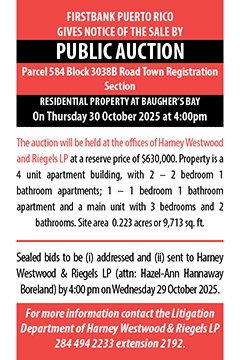Regional voting trends
“To the left, to the left
To the left, to the left”
- Beyonce
Over the last year and a bit, the Caribbean has seen a change in leadership in four islands.
-
Hon Philipe J. Piere became Prime Minister of St Lucia in July of 2021.
-
Dr Hon Natalio D. Wheatley (R7) became Premier of the Virgin Islands in April of 2022
-
Hon Dickon Mitchell became Prime Minister of Grenada in June of 2022l
-
Dr the Hon Terrance M. Drew became Prime Minister of St Kitts and Nevis in August of 2022
Apart from being new, the common trend amongst them is that their respective political parties are traditional labour parties with grassroots workers and centre-left philosophies
-
Hon Philipe J. Pierre, leader of the St Lucia Labour party (SLP)
-
Dr Hon Natalio D. Wheatley, leader of the Virgin Islands Party (VIP)
-
Hon Dickon Mitchell, Leader of the National Democratic Party ( NDP)
-
Dr the Hon Terrance M. Drew, leader of the St Kitts and Nevis Labour Party (SKNLP)
The fact that their parties comfortably won their elections speaks to a wider picture in the region.
Regional Trends
The vast majority of recent regional elections have seen the traditional labour parties returned to power or, in the case of the above, the labour-leaning parties have been voted in
Here is a timeline of voters' choices for reference.
-
March 2018 - Antigua: Antigua Barbuda Labour Party
-
February 2019 - Virgin Islands: Virgin Islands Party
-
December 2019 - Dominica: Dominica Labour Party
-
October 2020 - Bermuda - Progressive Labour Party
-
November 2020 - St Vincent and Grenadines: United Labour Party
-
November 2020 - Belize: People’s United Party
-
April 2021 - Cayman Islands: PACT Alliance
-
July 2021 - St Lucia: St Lucia Labour Party
-
September 2021-Bahamas: Progressive Liberal Party
-
January 2022 - Barbados: Barbados Labour Pary
-
June 2022 - Grenada: National Democratic Party
-
June 2022 - Colombia: Humane Colombia
-
August 2022 - St Kitts and Nevis: St Kitts and Nevis Labour Party
Essentially, the regional trend is that voters reject parties that are apt to implement policies that benefit the privileged while sacrificing the everyday person.
As importantly, the region's voters are moving away from supporting persons based solely on who can stand at podiums and attempt to deliver fiery ‘sermons from the mount. Those days of Caribbean people just blindly getting emotionally worked up are ending.
With the advent of social media, people can easily fact-check claims made by candidates and their respective parties. So, this means political leaders must have a level of intellect that they can articulate a vision that people feel is achievable.
Bottom line, people support those who support them.
As the song goes, “Me and my Neighbor voting Labour!!”



















.png)

















2 Responses to “Regional voting trends”